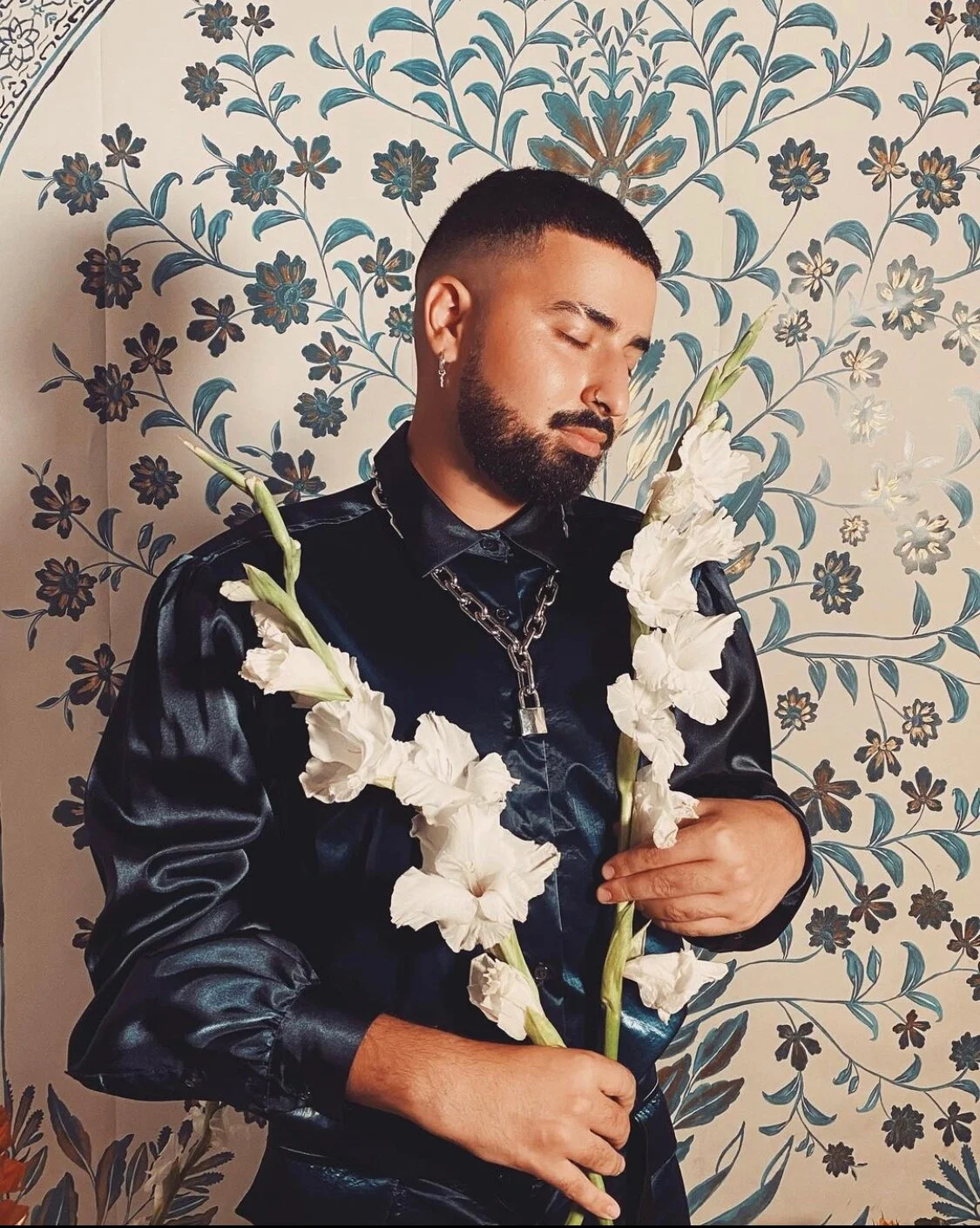A Palestinian you should know: Samer Owaida
Organizer in Chicago
Palestine in America (PiA):What balad(s) is your family from?
Samer Owaida (SO): My mother was orphaned by a family in Tulkarm, and I was born in Al-Bireh. I grew up all over Falasteen and with a divorced, orphaned mother, it’s always difficult to answer this question. But it’s made me believe that all of Falasteen is my home.
PiA: Was there a moment(s) that drove you to begin your career?
SO: Not one moment per say, but my kind of personality as a sensitive person and the systems of oppression around me and their impact slowly pushed me into becoming an organizer. I grew up really lonely and bullied a lot in school. It was particularly hard to bond with men who always tried molding me into another toxic male. I bonded with girls a lot, and that had its own challenges, but I learned a lot of my framework in life from the women around me.
PiA: What is your earliest memory of participating in political work?
SO: Working with BLM organizers in summer of 2016. Joining SJP and traveling for the first time to a conference (2016 NSJP). I kind of just found myself getting deeper and deeper into the work. It was all new, and I was so young, so I made a lot of mistakes.
PiA: How has/does Palestine play a role in your work?
SO: Palestine is my home. When I came to the US, it was always so clear that I’d never belong here. I’m living in a large hotel. So to fight and work towards a liberated Palestine (for EVERYONE)...it means I can go back and have a home.
PiA: What’s a Palestinian adverb,quote,person,poem,song that you often reflect on in this work?
SO: “As a Palestinian-Arab-Muslim-Leftist-Woman, I push my community’s boundaries gently, kindly, without breaking them because I love my People and my land. I serve my people and our struggle first, they come before my vision. None of my people are disposable (except for traitors). Why talk of any segment (of our community) as though they were...Is that not what imperialists want? All of my people are beautiful. Exclude none, attack none, work internally, confront communally until liberation. Love and support each other. Serve & practice - not preach - placing the land and the people first in all ways. Liberation is communal.” - Lamis Deek
PiA: What do you hope to achieve in your line of work?
SO:I want to shift people’s perception of disposability. I want us all to fight for our humanity and see each other as flawed human beings. I want us to love each other harder and support each other in the ways we need to be loved and supported. Going back to the basic necessities we were robbed of.
PiA: Many times, Palestinians endure marginalization on all sides of the aisle -- what obstacles do you face/have you faced, and how have you overcome it?
SO: I’m a minority in a Western culture, as well as a sexual minority in Western and Arab culture. The feeling like I belong nowhere is difficult to cope with. It can be very hard to find and build community with people that share my values and beliefs.
PiA: What’s your advice to folks looking to deepen their political journeys?
SO: You have to be introspective. Sometimes people spend so much time calling out the world around them, they forget to check in with themselves and interrogate their harmful behaviors and beliefs.
PiA: How do you see the Palestinian diaspora intersect with issue based work amongst other communities?
SO:Joint struggle. No matter our identities, the struggle we share is a struggle against theft. Stolen land, stolen resources, and stolen labor. We can talk about horizontal oppression, but we also need to recognize the imperative need to work together as a coalition of oppressed people.
PiA: How would you define solidarity?
SO: I’m more interested in joint struggle work than solidarity. Solidarity work often takes the form of showing up for folks. Joint struggle is a framework that recognizes our need to show up with each other as a community.
PiA: What do you want people to know about you/your experience as a Palestinian in this work?
SO: It’s increasingly isolating and lonely, and being in visible positions leaves you susceptible to so much criticism and misunderstanding.
PiA: What does a free world mean to you?
SO: A world where even small cruelties don’t exist anymore. I don’t want to just abolish harmful systems and structures, I want us all to unlearn them in our hearts.
PiA: Was there a moment that made you consider leaving political work? What was it and what kept you working in politics?
SO: There were a lot of moments, but they all revolved around disposability. I’ve learned to be careful about how quickly we dispose of people. We can get angry at someone, and the mistakes they've done, while still leaving space for something more, and for the possibility of something more. We all have a habit of freezing people in time when they disappoint us, and summarizing them on that basis forevermore. Some people may deserve that, but most don't.




